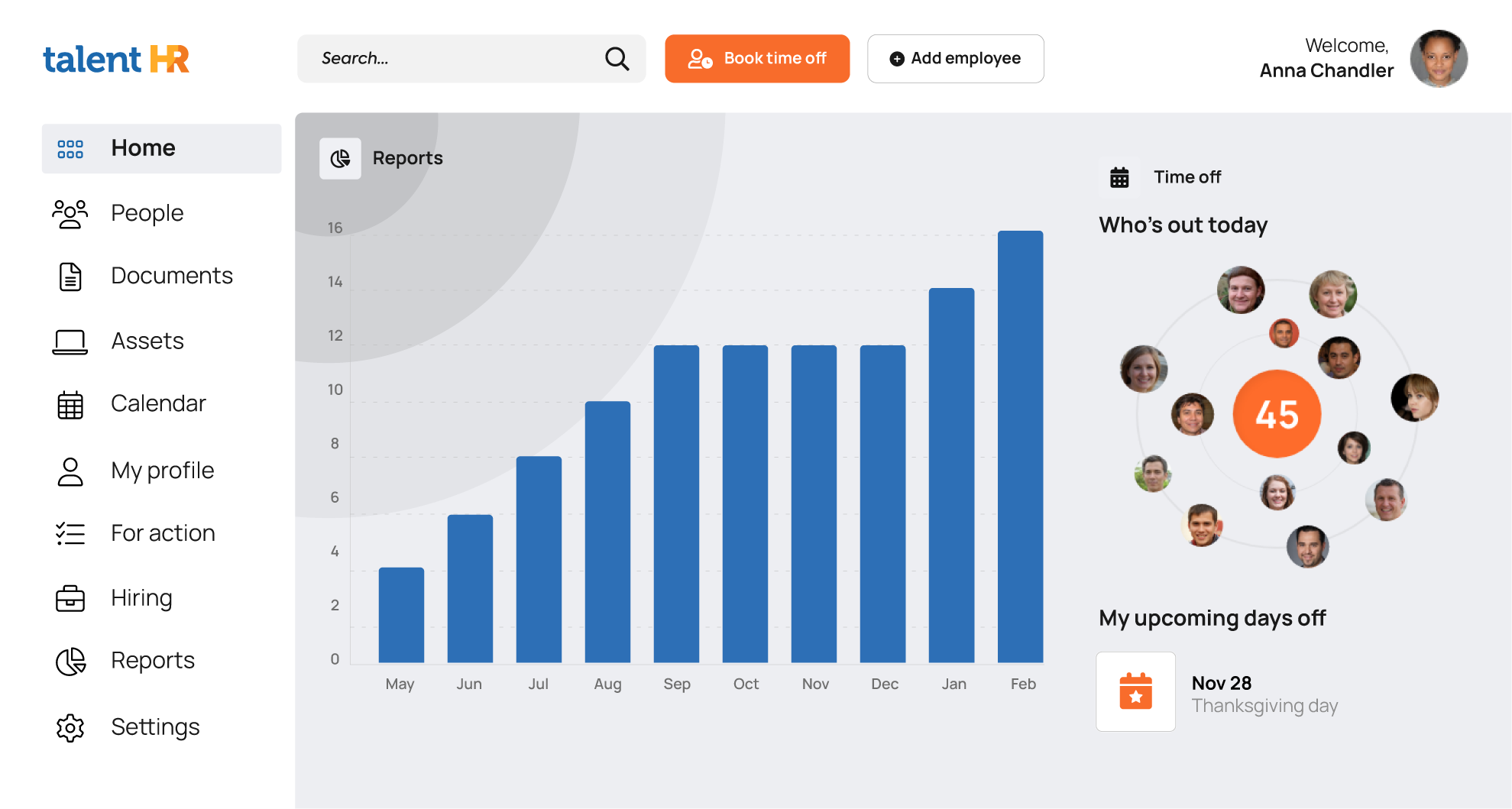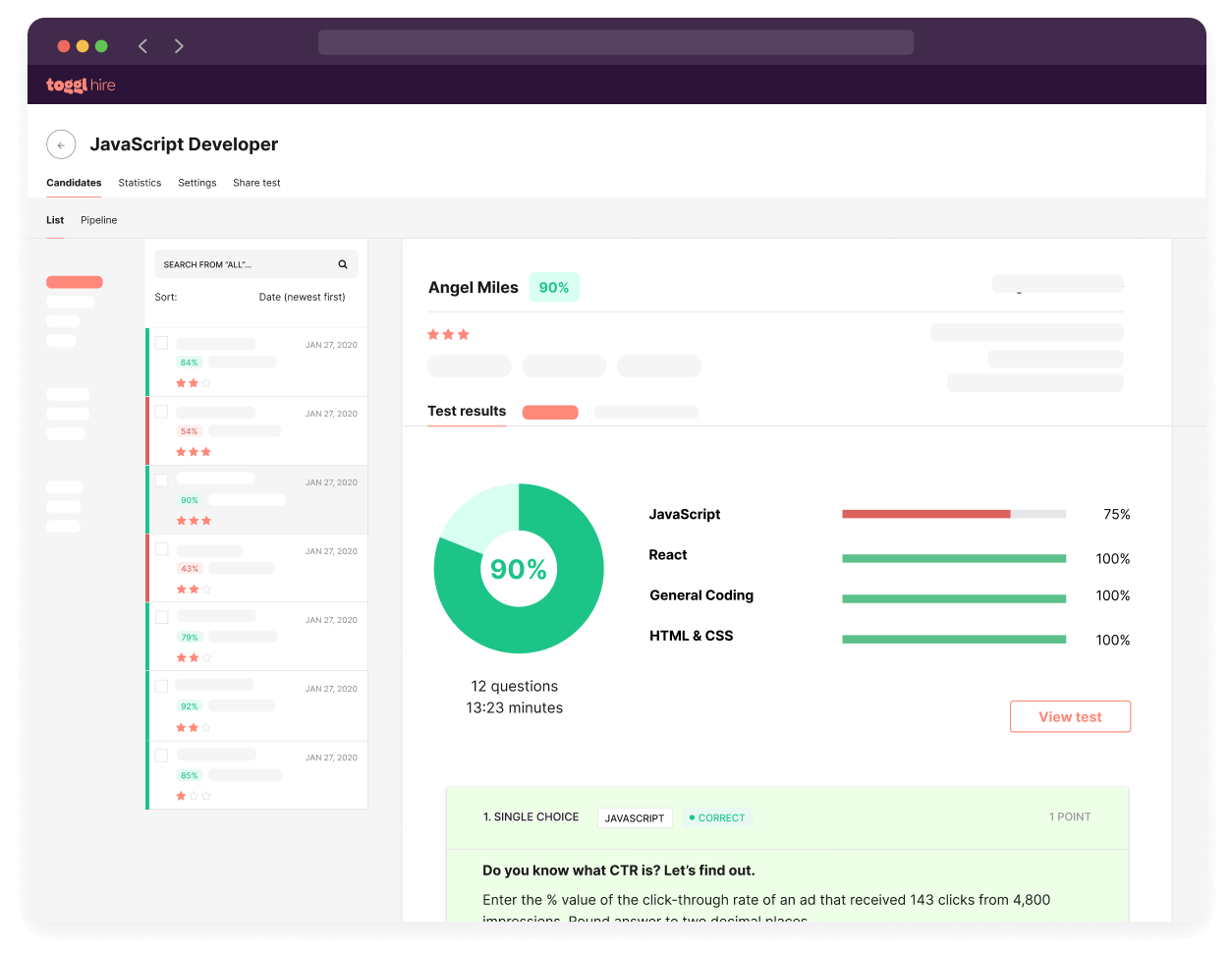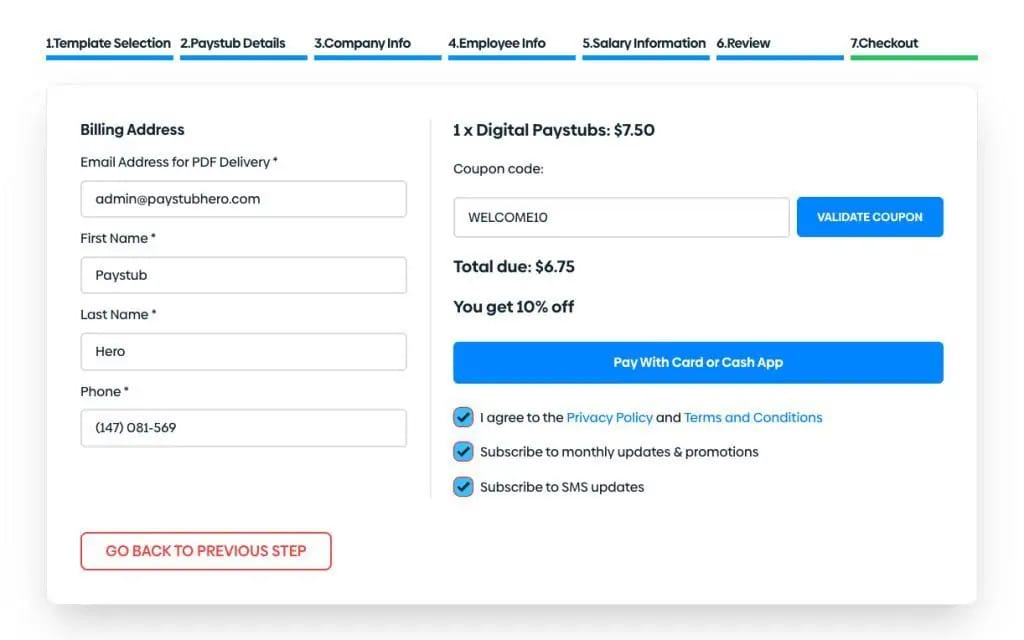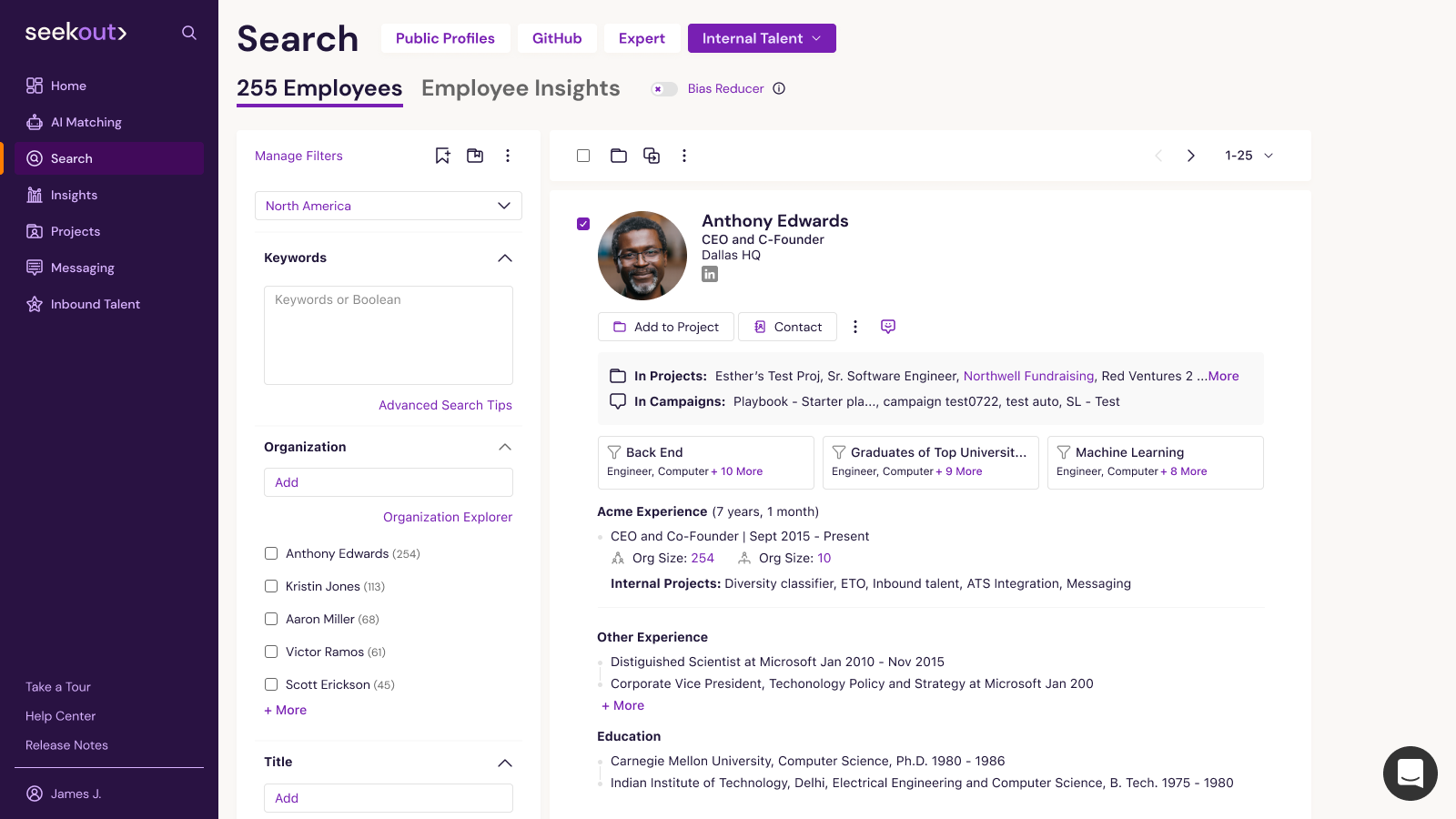
HR Tools for Start-ups: Why CEOs Should Prioritize HR Tech Integration
HR tools for start-ups are a quick way for founders to hire great workers without having to invest their whole workweek in it. Besides saving time by helping find the right talent and then getting that new hire on board, the right HR software tools for start-ups will save money in the long run by bumping retention a notch up.
See, for example, the impact that HR software can have on a start-up (and on a CEO's peace of mind). A very insightful Harvard Business Review piece noted that organizations with a standard onboarding process—start-ups can access this with HR software—have 62% higher new hire productivity and 50% higher new hire retention rates. That’s too significant to overlook, especially if start-ups and founders know they won’t have the capacity to go out looking for replacement workers, especially since CEOs are more worried about retention than almost everything else.
But start-up CEOs don’t have time to address those concerns and read a drawn-out write-up. That’s why we’ll list the best HR tools for start-ups and explain why CEOs should prioritize HR tech integration from day one—especially if they want their frenzied path to growth to be as streamlined as possible and along with the best talent possible.
The Significance of HR Tools in Start-up Growth
Modern HR tools are agile and scalable. But, understandably, start-up CEOs don’t see it this way and instead view HR tools as too far-fetched solutions to nagging issues like turnover.
Their views are pretty accurate. Other HR software, like legacy HRIS tools, have a well-earned reputation for being as clunky and costly as ERP systems. Fortunately for start-ups, contemporary HR tools have become so scalable that they can work for a single-person company or a 5000-employee firm alike. Some tools can even go all the way, faithfully allowing the company to go from rags to riches. An adequate HR tool will work for a developing company and keep pace—scale—without requiring migrations or infrastructure expenses. If the vendor did things alright, this kind of tool would also be adequately priced so it’s affordable.
One key tech development backing this agility is SaaS set-ups. SaaS allows a nimble and small company to access a readily available tool without having to shop around for hardware (or personnel to rig that hardware up). SaaS HR tools for start-ups, provided they have an adequate plan for starting companies, are a no-frills way to add core HR processes, like job ad posting, onboarding, or talent management, in an instant.
Key Benefits of Integrating HR Tools for Startups
Start-up CEOs will save time and money on their human resources by using these HR solutions and tools for start-ups. These are the underlying reasons behind those savings—the key benefits of integrating those HR tools into a start-up’s tech stack.
Optimized Recruitment and Onboarding
The first key benefit of HR tools for start-ups begins even before the second employee sets foot in the office. An HR tool will help a start-up CEO by writing the ad (thanks to specially curated LLMs), posting it on a custom Careers page, and when the time comes to hire that candidate that clicked on the ad, onboard them so they can start working right away. The tool should recruit and onboard well enough so that the candidate then decides to stay.
Streamlined Administrative Processes (and Data Collecting)
HR tools for start-ups ease up the bureaucratic and manual process of getting a new employee on a team. The key to making the administrative process so streamlined is that the right HR software features and tools for start-ups either automate the workflow or hand it off to the new employee. By the time the second employee shakes hands with the CEO on the first day, they’ll have already completed their profile (by automatically receiving a request to fill in a form) and have their very own page where they can even look up and request their days off (when they earn them, of course).
On their end of things, the start-up will have their employee data and a worker profile saved in compliance with privacy regulations. This will start providing you with data points you can then use to get your own HR metrics. Your investors will love that you’re sticking with their advice when they tell you, “You can only manage what you can measure.”
Improved Employee Experience and Engagement
This point seems a little confusing since we’re mentioning the benefits of HR tools for start-ups. Why list an item that’s mostly perceived on the employee side? That’s easy to answer: Improved employee experience and engagement have a very impactful impact on a start-up’s lifecycle. We have already discussed at length how a sound onboarding experience will likely drive up retention. That’s only the beginning.
An adequate HR tool will also help CEOs automatically monitor employees' well-being along their complete lifecycle and measure their evolving employee engagement with easy-to-understand metrics.
Top HR Tools Suitable for Start-ups
CEOs don’t have time, so we list the best HR software solutions for start-ups. These are the top HR tools for start-ups that help founders save time and money when recruiting top talent:
1. TalentHR: The All-in-One HR Software for Start-up Founders

TalentHR is a full-featured HR process automation platform that takes care of the most time-sensitive HR headaches that start-up founders meet. It helps CEOs handle daily and long-term HR needs by automating most tasks and presenting information as easily as possible. Founders can get started for free.
Here's why TalentHR is a worthy choice for start-up founders:
- Affordable: Start-ups need to allocate their budget very wisely, and TalentHR offers a freemium model that allows founders to access core HR functionalities like applicant tracking and benefits management at no initial cost for up to 10 users.
- Scalable and quick to set up SaaS platform: Since it’s a SaaS solution, TalentHR will join your start-up for the whole pre-seed, seed, Series A, and beyond the journey. It will work when you’re only one employee and when you have 500 people on your payroll across plenty of countries. It’s a SaaS, so you don’t have to deploy any of that. It also has a well-documented API your soon-to-be IT department will be delighted about.
- Simplified processes that impact retention: Features like automated onboarding and time-off management simplify workflows and alleviate administrative workloads. You’ll be gauging an employee’s engagement right after they start with you. The hiring process and many HR processes, like employee benefits and performance management, will be conducted from here.
- Your own Careers page: TalentHR lets you post job ads on your custom domain, so you can make a Careers page where you can find open positions.
- Job ad writer with AI: If you’re a founder who can do most things, but writing compelling copy is not one of them, TalentHR’s AI writing assistant will put the job description together. You only need to state the job title.
- Focus on building your team: Its applicant tracking system will make sure you can spend your time tracking down leads instead of on paperwork.
TalentHR is an ideal match for start-ups seeking an affordable, user-friendly, and scalable HR solution. It automates as much as possible, streamlines the administrative bits, helps track down the best talent, and will keep up with your exorbitant growth. Your employees will appreciate all of this, possibly by just staying longer by your side. And HR professionals who join your side will have a great starting point.
2. Toggl Hire: An All-Around Test Platform

Toggl Hire helps start-up founders with skill tests that candidates must go through. Assessments of this kind are usually associated with techies who are requested to complete coding challenges. But Toggl Hire takes the concept further and offers marketing assessments. Founders who can’t risk hiring a chatty résumé expert making their way to their start-up can use this HR tool to narrow their funnels down. Even then, remember that these assessments are considered a time sink by many jobseekers and that’s not good for your employer brand.
3. Textio: Writing Job Ads with Craft
Textio is one of the most noteworthy HR tools for start-up founders because it helps widen an applicant pool. Their solution checks job ads and makes sure the language is adequate to invite, instead of limit, who can apply. Still, it's better to have an unbiased job ad writer integrated into a comprehensive software, especially if you’re a CEO with little to no time to spend jumping in between tools.
4. PayStubHero: Simplify Payroll Documentation

PayStubHero is a lifesaver for businesses juggling payroll. It’s an easy-to-use tool that lets you create professional, accurate pay stubs in minutes, whether you’re paying employees, contractors, or freelancers. Designed to keep things compliant and stress-free, it’s a great fit for businesses of all sizes looking to simplify payroll without spending a fortune. If you want to save time and keep your team happy with clear, reliable payment records, this tool is worth checking out.
5. SeekOut: Finding Passive Candidates

Start-up CEOs who’re looking for passive candidates can try SeekOut. This HR tool has a very strong filtering feature that lets founders tap into talent that’s not actively reaching out. It seems like an ideal tool to find a very vetted candidate who can then be onboarded through an all-around, scalable tool. The downside: SeekOut can be time-consuming. They’re actually offering 1:1 meetings on their landing page. Founders might not have the time to shop around with meetings.
Implementation Strategies for HR Tech in Startups
HR tools for start-ups should be affordable and scalable and should integrate into what’s running now and what’s running next. That’s why founders and small businesses should look out for open integration methods besides siding with a SaaS solution with free tiers. Solutions that offer APIs are possibly the best of the bunch because a well-documented API means that, down the line, just about any integration will be possible.
Once a founder has set for a certain workforce management solution, the real implementation strategy is simply using the solution. Once the company has grown enough, the CEO can pass the torch to the HR teams to keep handling it. The HR reps who now have to interact with their HR tool will meet a trove of data points they can work on—including retention, demographics, and engagement.
HR Software Can Help Start-ups Grow
HR tools for start-ups will spare CEOs a headache when they need to satisfy investors or meet client deadlines. A stable, healthy workforce—which stems from, among other things, a good onboarding experience—will mean a founder can focus on delivering instead of giving explanations. A suitable HR tool for start-ups will also be foundational in the sense that companies are made of people, and a good employee management tool will help bring on the right people. HR software, in so many instances, can help a start-up grow.
The best time for start-ups to start using an HR tool is as soon as they need a new employee. TalentHR has CEOs covered on that. It’s an easy-to-view, dashboard-based solution made for any audience and for any company scale. Our free tiers will let CEOs get their onboarding, analytics, and even job posting done right from the get-go.
Register now for free and automate HR tasks on your start-up right away.
To learn more about how start-up CEOs can streamline their HR operations, visit TalentHR.

![3 Best HR Automation Tools to Save Time (And Money) [2025]](/content/images/size/w600/2025/07/3-Best-HR-Automation-Tools--2025-.png)
